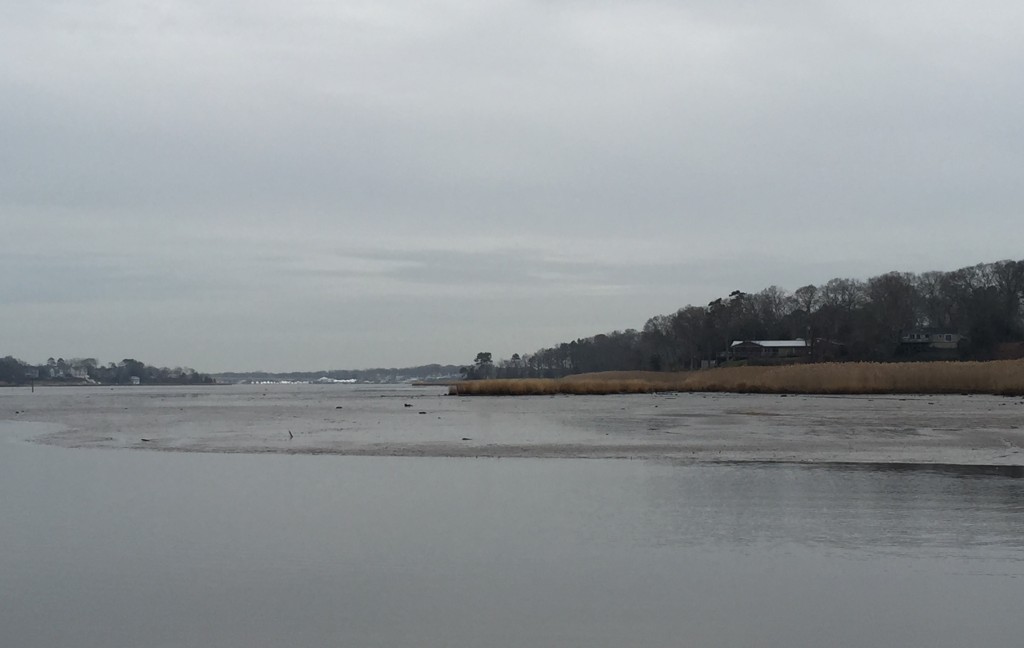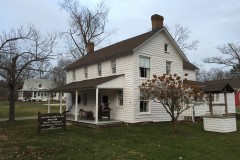Editor’s note: This article originally appeared on Shorebeat Dec. 24, 2014.
Christmas wasn’t always a day of delicious dinners, presents and football – especially in 1850s Brick Township.
Like many southern New Jersey families of the time period, Brick Township’s Havens family made their living operating their farm on what is now known as Herbertsville Road. A dirt path from the coast to Freehold, Herbertsville was part of a network of roads that crossed the state, allowing farmers and fishermen to deliver their wares from place to place.
|
|
The agrarian economy meant that even Christmas Day was a working day, and every family member was expected to pitch in.
“The chickens had to be fed, the cow had to be milked, and food had to be provided,” said Gene Donatiello, the Brick Township Historian.
Locals at the time “recognized Christmas and Christmas Day, but they didn’t have the money to put out for decorations,” Donatiello explained. “It’s a whole different ballgame when you’re a subsistence farmer.”
Church services marking Jesus’ birth were usually held at night, after the work day was over.
And so, on Christmas 1858, like so many other winter days, 13-year-old Charlotte Ann Havens and her 11-year-old sister, Amey Jane Havens, walked from the family homestead through the nearby woods, down to the Manasquan River.
The goal of the day was to spear eels for food. By the time Christmas rolled around, the eels – plentiful in the Manasquan to this day – had buried themselves in the mud, Donatiello said, so the only way to catch them was to jab a spear into the mud in hopes of snagging one.
On this Christmas Day, however, tragedy struck.
The weather had been cold up until Christmas that year, with ice having formed over top the river. But the temperatures hadn’t yet reached the deep freeze of winter. Both of the Havens girls fell through the ice after venturing just off the shoreline.
Up the bank of the river, William Alfred Sherman, the girls’ 19-year-old stepbrother, heard their cries for help. He rushed down to rescue the young girls, only to fall through the ice himself.
All three died that day, having drowned in the cold, muddy river.
“It’s a shocking story,” said Donatiello. In fact, he said, a story that more recent members of the Havens family asked not be told for years.
According to historical records, the Havens girls were buried at Methodist Protestant East Cemetery in Point Pleasant. No such information could be found on Sherman.
The Havens family remained in the house on Herbertsville Road into the 1980s. Olie Havens, the youngest grandson of Josiah, who bought the homestead in 1827, died in 1986. Soon after, his son Elmer donated the property to the Brick Township Historical Society.
We tell the story of Brick’s first tragedy not to conjure up unpleasant memories, but to provide a glimpse into what life, death and Christmas were like in the earliest days of our township.
So when we, as modern Brick residents, gather around our Christmas trees this week, open presents, and watch the big game, it might be worth remembering what Christmas was like more than 150 years ago – so we can be thankful for our families, our health, and the happy memories we’ll share with our neighbors for years to come. As it was in 1858, life remains precious.













